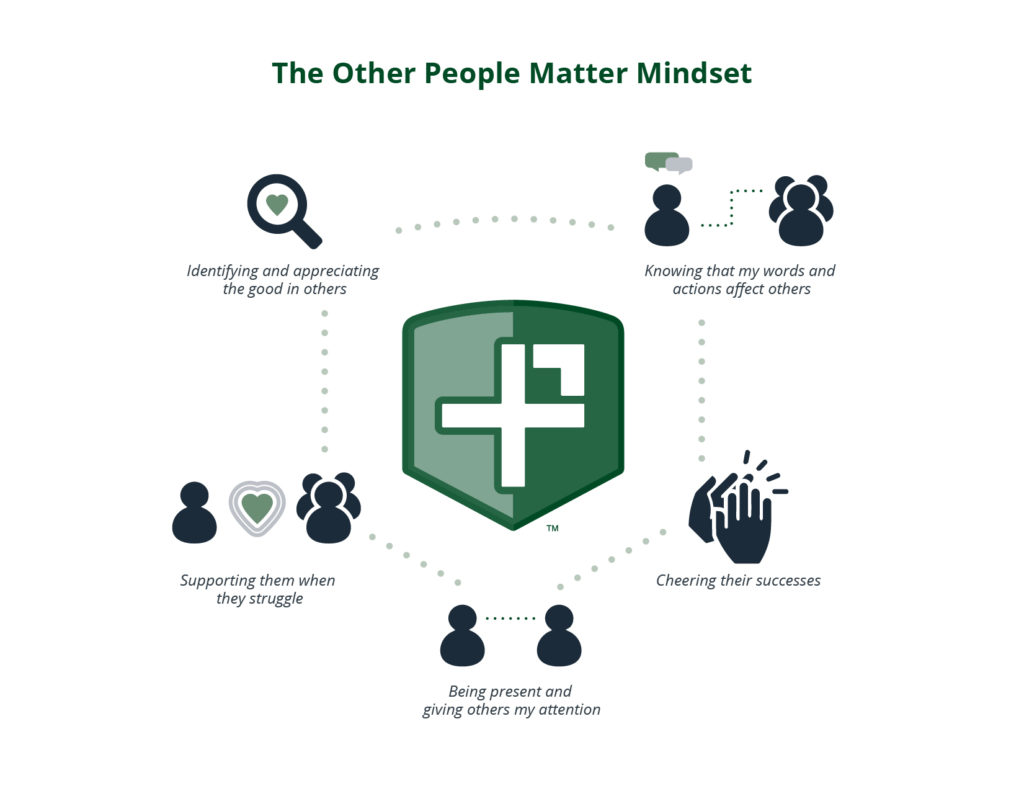OPM2 - Identifying and Appreciating the Good in Others
By Jeff BryanIf we want our kids to be successful, we have to teach them to build positive relationships. It’s hard to communicate with people. It’s hard to communicate your emotions and feelings. If we can help kids do that now, they’re gonna rise to the top and there’s nothing they can’t do.
-Dr. Virginia Hill
-
For the P2 Reflection Journals, used by all elementary students at the end of the week, click here.
Starting Monday, Partner Schools nationwide will begin learning about our first Other People Matter Mindset (OPM2) element: identifying and appreciating the good in others. The reason that we’ve added seven weeks of OPM2 is simple. It’s to regularly remind students and staff that relationships are the key driver in our life satisfaction.
Identifying and appreciating the good in others isn’t always what comes naturally. Often, it’s easier to blame others for our problems or find flaws in others to use as excuses for our own jealousy, bitterness, or resentment. The problem is that this negativity usually leads to problems – for ourselves, for the other person, and for our relationships.
To see the good in others, we must first slow down and take the time to pay attention. Look for the intentions behind people’s words and actions. If you feel slighted, you can use perspective and ask, “Did that person intend to hurt me or did he/she just come across in an awkward manner?” It’s also useful to see the skills and character strengths others possess. Doing so leverages your appreciation of excellence and strengthens your leadership capacity.
This week’s example is Dr. Virginia Hill, former principal at Lincoln Elementary and current principal at Milliones University Preparatory School. We had the opportunity to visit Lincoln last year to see the impact of Dr. Hill’s leadership. As she explains in the below video, the culture at Lincoln begins with character and relationships — and is grounded in the core belief that tough circumstances don’t define who you are, but instead, it’s just a place that you are in.
So, why is this important? Identifying and appreciating the good in other people helps you see the world through a more positive – and less threatening – lens. If you’re constantly seeing the negative traits of people, you’re going to think the world is comprised of bad people – and you’re going to operate from a defensive posture. This isn’t to say that we should be naïve or see the world, and its people, through “rose-colored glasses.” It’s just that we should strive to understand people’s intent.
On a group level, identifying and appreciating the good in others is very important. Reciprocity, the social norm of responding to positive actions with a positive reaction, is powerful. If you see the good in another, they’re likely to see the good in you. That’s a great foundation to start an interpersonal relationship – and a group culture – especially when couched in the vocabulary of the 24 character strengths.

And, as a reminder, you can find all of our weekly slide presentations on our website’s Resources page here. This page is the place that we recommend you go to access all of the resources — not via Google Drive folders.
To find your grade level’s presentation, you can simply type the word “teamwork” into the Resource Title search bar or sort by Character Strength and select Teamwork. Each of those options will provide you with 10 slide presentations and one 1-page character card. For a simple overview of the Resources page, with pictures and videos, click here.


